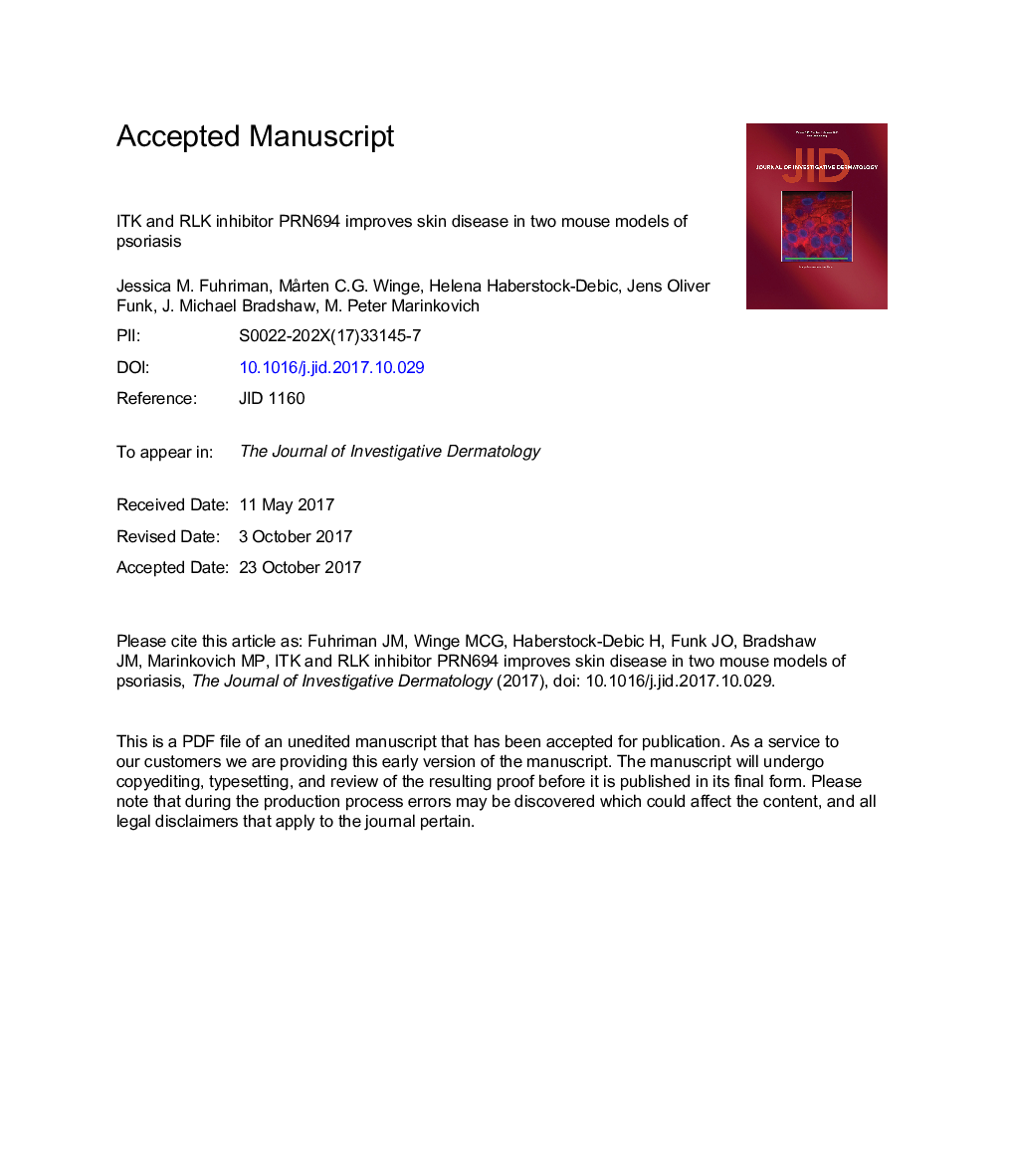| Article ID | Journal | Published Year | Pages | File Type |
|---|---|---|---|---|
| 8716115 | Journal of Investigative Dermatology | 2018 | 31 Pages |
Abstract
The chronic and highly prevalent skin disorder psoriasis vulgaris is characterized by a hyperproliferative epidermis and aberrant immune activity. Many studies have highlighted the role of differentiated T lymphocytes in psoriasis progression. Several biologics are currently available that target proinflammatory cytokines produced by T lymphocytes, but the need for improved therapies persists. The small molecule PRN694 covalently binds ITK and RLK, two Tec kinases activated downstream of T-lymphocyte activation, both of which are up-regulated in psoriatic skin. These Tec kinases are involved in signaling cascades mediating T-lymphocyte proliferation, differentiation, and migration and proinflammatory cytokine production. In vitro analysis showed that PRN694 effectively inhibited IL-17A production from murine T helper type 17-differentiated T lymphocytes. Additionally, PRN694 effectively reduced the psoriasis-like phenotype severity and reduced epidermal proliferation and thickness in both the Rac1V12 and imiquimod mouse models of psoriasis. PRN694 also inhibited CD3+ T-cell and γδ T-cell infiltration into skin regions. Inhibition of ITK and RLK attenuated psoriasis-associated signaling pathways, indicating that PRN694 is an effective psoriasis therapeutic.
Related Topics
Health Sciences
Medicine and Dentistry
Dermatology
Authors
Jessica M. Fuhriman, MÃ¥rten C.G. Winge, Helena Haberstock-Debic, Jens Oliver Funk, J. Michael Bradshaw, M. Peter Marinkovich,
